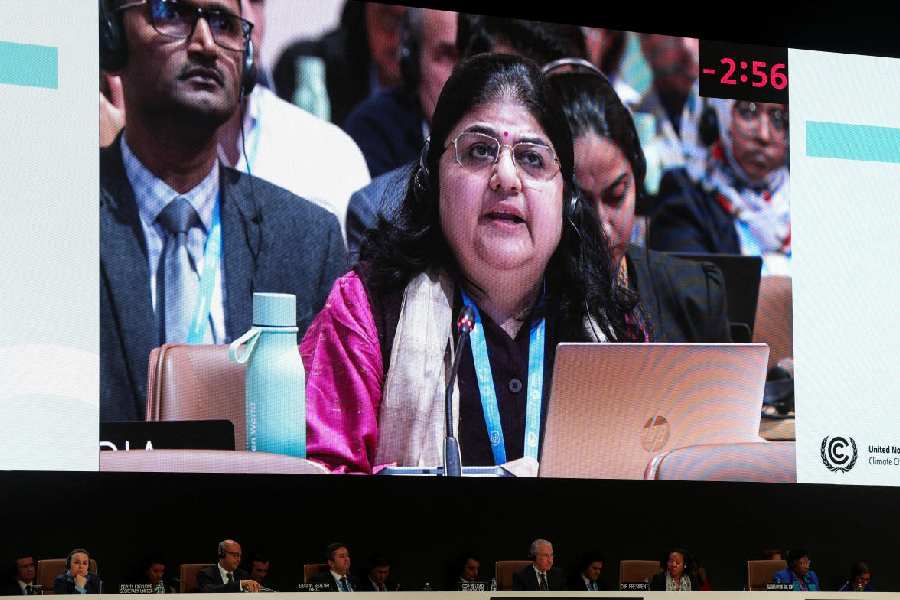UN Climate Summit Reaches $300 Billion Annually Target: A Breakthrough or a Delay of Worse?

In a landmark agreement reached at this year's United Nations climate summit in Azerbaijan on Sunday, wealthy nations pledged to increase their financial support for developing countries to triple from current levels to $300 billion per year by 2035. This move is seen as a significant step towards addressing the pressing issue of climate change.
The deal marks an upward revision from the existing target of $100 billion and demonstrates a commitment by developed nations to play their part in helping developing countries adapt to the impacts of climate change.
According to experts, however, this figure remains woefully inadequate. Developing countries now rely on more than four times what is being proposed for each year, with India recently stating that it was only enough to bridge an "optical illusion" of hopelessness and despair to prevent complete disarray by the 2040's, according to former Vice President of Brazil Luiz Inácio Lula da Silva.
India had raised objections to the agreement during talks at COP29. An aide for India told reporters that developing countries have insisted on $500 billion annually as well as a commitment from G20 nations that more climate funding is required, but was not included in COP deal, but that could be discussed next year when the next COP takes place.
Despite these objections and reservations expressed by certain countries about what amounts to how much actual money really matters for doing something to help stop climate change overall then "the pledge vs. practice will depend on countries continuing to work together" said the UN.
On Monday morning, however, even India's ambassador told press that despite initial reluctance some other countries including Australia which had previously rejected more ambitious targets, would support the development of rules for transparency on implementation of the COP agreement to increase progress toward the goal agreed to at COP29.
